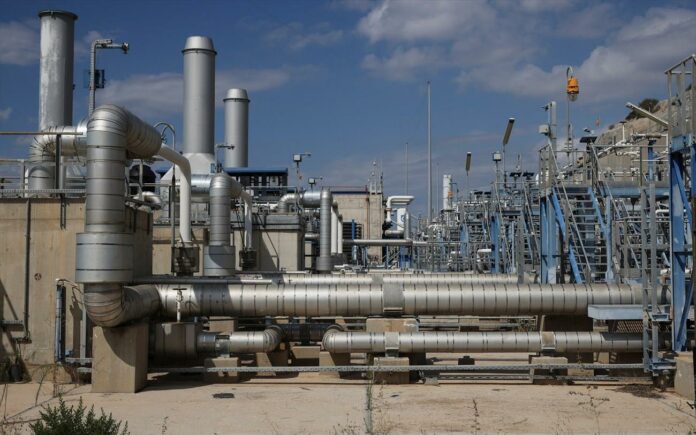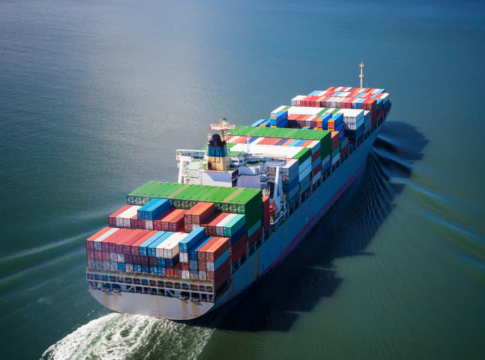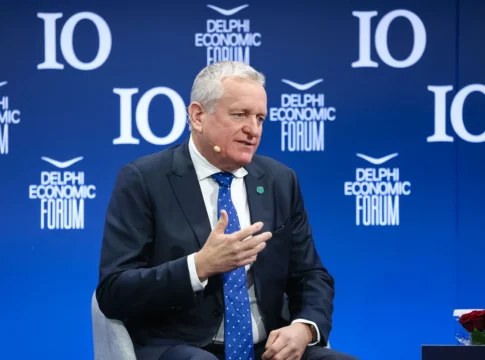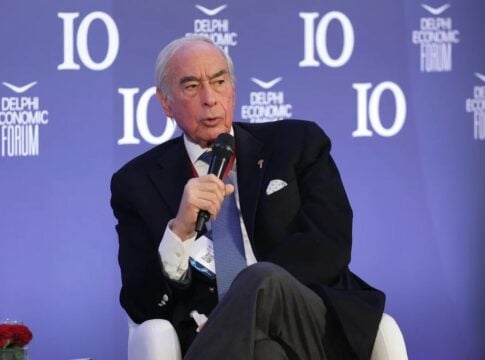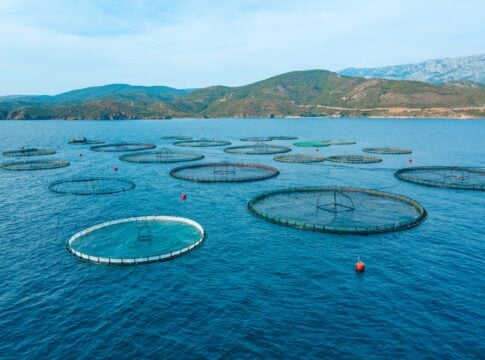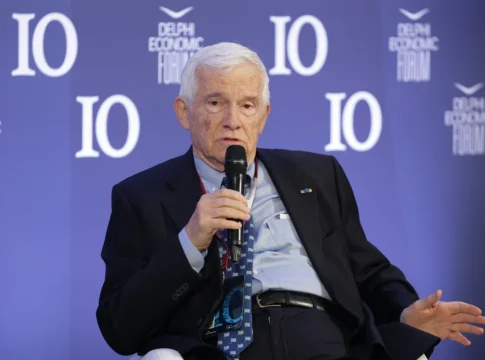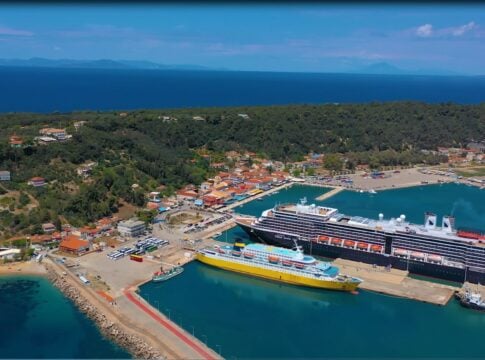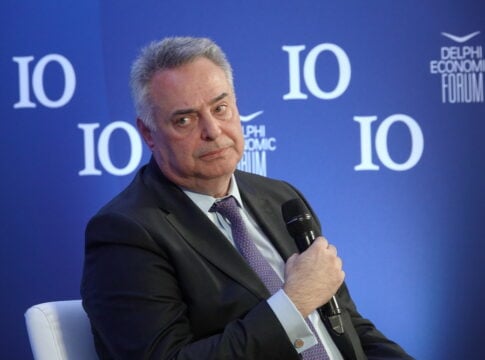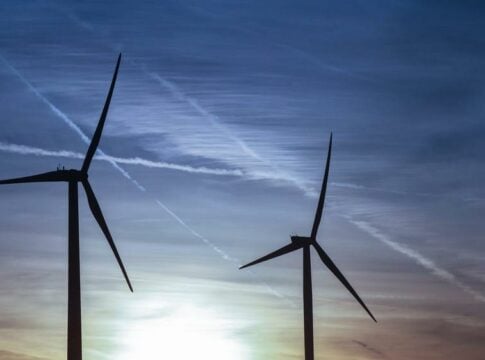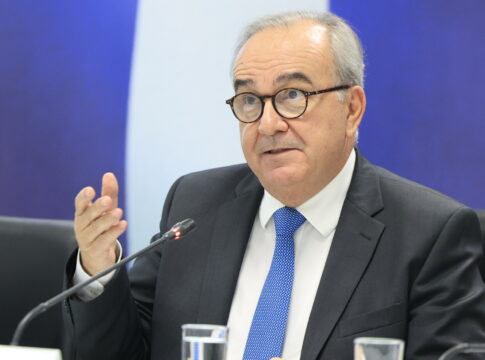Market executives do not seem worried about the energy sector in 2025, according to the conclusions of a roundtable discussion of the executives of the Greek Energy Forum (GEF), which was held online in February.
Four senior executives of the Greek think tank, Dr. Valentina Dedi, Vice President, Menelaos Vakalopoulos, Head of the London office, Michalis Mathioulakis, Academic Director and Antonis Panagiotopoulos, Member of the Board, under the coordination of their colleague Panos Mavroidis, Member of the Executive Committee, shared with the audience their assessments of the energy markets in the year 2025.
Based on the data presented, we can outline a series of important factors that may concern the market in 2025 regarding the energy transition, geopolitical developments, energy prices, energy sector investments and climate policies in Europe and the United States.
Regarding the supply and prices of oil and natural gas, Dr. Valentina Dedi referred to the ongoing geopolitical tensions and energy policies in relation to the energy transition, which continue to test the resilience of energy markets and shape the framework of policies towards fossil fuels and cleaner forms of energy.
In the crude oil markets, a strong increase in production and supply from countries such as the USA, Canada and Brazil is expected, and at a global level, production is expected to exceed demand.
The new US Trump administration, in addition to oil, plans to increase gas production and strengthen the role of nuclear energy (SMRs) in the country’s energy mix.
A significant risk factor will be the stance it will take towards Iran and towards sanctions against the shadow fleet of the Russian Federation.
Dr. Dedi noted that the expected significant increase in US LNG supplies that will supply the global market could reach up to 40 bcm, while an increase in European demand for LNG is already being observed, as the interruption of the Russian-Ukrainian Agreement for the transit of gas to the EU removes an annual quantity of approximately 15 bcm from the European market.
Greece has responded effectively to the challenges of the last two years, implementing significant natural gas infrastructure projects and is currently able to import sufficient quantities of natural gas and LNG, as well as export to its neighboring countries.
However, the fact that it is still dependent on gas and LNG imports means that anything that happens in international gas markets affects it to a large extent.
In relation to developments in EU-US energy and trade transactions, Michalis Mathioulakis assessed that the election of Trump shows that it may not lead to such significant changes in the energy sector.
At the same time, the 2024 elections in EU countries and in the European Parliament were followed by a change in mentality in relation to the desired rate of development of green forms of energy and the ease with which RES can be integrated into the energy mix in accordance with the EU Green Agenda.
This change was accompanied by a more mature stance at a pan-European level regarding the role of natural gas and its infrastructure for energy systems in Europe, as well as for future cooperation with important trading partners in the gas sector, such as the USA and Norway.
Europe’s interest in the role of gas, however, raises the risk of new discussions about possible higher Russian supplies of cheap gas to the EU, something that should be categorically ruled out.
Meanwhile, following the developments in Syria, Turkey is seeking to assume the role of an energy hub, promoting the narrative that the gas it will export is not necessarily of Russian origin but is a mixture from various sources (Turkish blend).
Mathioulakis said that while this narrative has been adopted by some people in Europe, it lacks foundation, while the EU should be particularly careful and ensure that it is supplied with gas from many different alternative suppliers, so that it is not dependent on anyone.
Electricity prices is also one of the major issues to be addressed in 2025, with Menelaos Vakalopoulos referring to the fact that negative electricity prices and the phenomenon known as price cannibalization are creating problems for asset operators who want to maintain the market value of their projects and constitute significant challenges in most European markets.
Equally critical for energy developers is the long period until they can connect to the electricity grid, which is already facing a significant congestion problem due to a chronic lack of investment in upgrading existing infrastructure.
Institutional investors are now turning their attention to battery-based energy storage units, a fact that will become particularly evident in 2025. The problem with RES cuts in Greece is significant and is related to the current state of the grid, but it can be addressed by completing projects to expand the electrical interconnection network domestically and internationally.
At the same time, Trump’s election does not appear to have a negative impact on investments in traditional technologies such as photovoltaics and onshore wind, as they are now mature assets with high returns for investors.
For assets such as batteries, Vakalopoulos said that market fundamentals are largely what will determine their further course and their support or not by the Trump administration.
The only clean technology that does not appear to be supported by the Trump administration is offshore wind farms, with major groups, such as BP, announcing the abandonment of related projects in the US.
For the climate, Antonis Panagiotopoulos pointed out that policies in the EU and the US are expected to show significant divergences in 2025, as in the EU they are expected to continue, while in the US they are now placing greater emphasis on fossil fuels and adopting tax breaks to boost corporate investment.
However, the assessment is that the momentum created by the Inflation Reduction Act will not be disrupted during the Trump era, maintaining the favorable consequences for the productivity and efficiency of the US economy and business.
The increased importance that energy security issues have acquired in the last three years has inevitably contributed to the slowdown of the European Climate Targets for 2030.
To address the increased energy security challenges, European energy systems rely mainly on the contribution of fossil fuels. This implies a delay in the decarbonization of the energy mix in line with the ambitious European goals.
Panagiotopoulos noted that so far the scale of the climate threat has not been widely understood, because the climate risk has not been sufficiently quantified.
However, policies such as those implemented by the EU for carbon pricing will contribute in this direction and will facilitate the formulation of different scenarios in the future in relation to addressing the threat of climate change.


